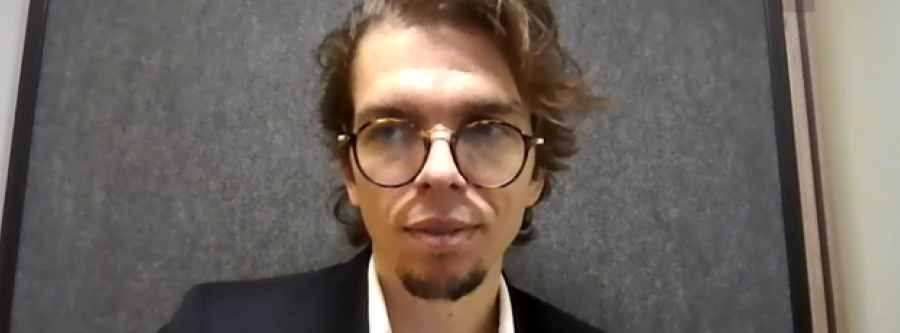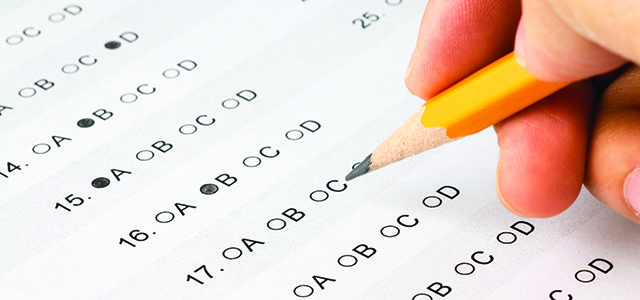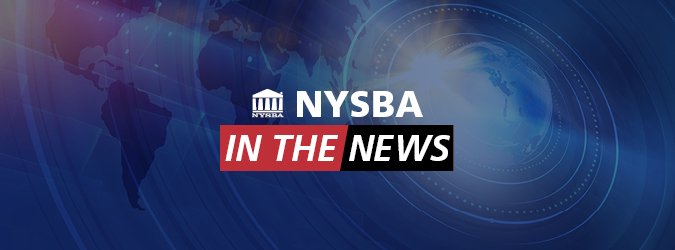New York Needs a New Bar Exam
7.27.2021
The license to practice law in New York has been the international gold standard for many years. This is so, in significant part, because until 2015, New York had arguably the most challenging bar examination in the nation, with robust testing of both New York law and federal law. However, in 2015, New York largely ceded control over bar credentialing to the National Conference of Bar Examiners by adopting the Uniform Bar Examination.[1] With the advent of the UBE, meaningful testing on New York law vanished, followed rapidly by ever-diminishing study of New York law. Today’s law students are measured by knowledge of federal law and of principles deemed by the NCBE to be generally accepted in American jurisprudence. In January 2021, the NCBE announced its intention to replace the UBE in four to five years. The NCBE plans to drop testing of family law and trusts and estates, even though those are bread-and-butter areas of practice, and to deliver its test solely by computer without any hard copies. The Association’s Task Force on the New York Bar Examination, in a report overwhelming approved by the House of Delegates, urges that New York return to administering its own test with a component that rigorously tests knowledge of New York law. It is imperative that New York act now or else we will have no choice but to accept the pig that is being developed in the NCBE’s poke.
How We Got Here
Bar admission requirements exist for one purpose – to protect the public from ignorance, inexperience and unscrupulousness.[2] Because law schools do not have uniform policies for admission, curricula and grading, candidates for admission are measured for competency by examination. Examinations have been required in New York since 1837, and, since 1894, the Court of Appeals has been tasked with the responsibility of providing for a uniform system of examination of candidates for bar admission, to be implemented by the Board of Law Examiners.[3] New York relied entirely on its own bar examination until 1979, when it adopted the Multistate Bar Examination, prepared by the NCBE, which displaced roughly one-half of the local examination.
From 1979 through February 2016, the New York Bar Examination was administered over two days. The first day consisted of five essay questions and 50 multiple-choice questions prepared by BOLE. This portion of the examination tested New York law exclusively, including such subjects as administrative law, constitutional law, business relationships, contracts, real property, civil practice, criminal law and procedure, torts, conflicts of law, evidence, matrimonial law and Articles 2 and 9 of the UCC. Many of the essay questions were drawn from Court of Appeals and Appellate Division opinions, which meant that candidates were tested on issues and points of law that had actually been confronted by lawyers in practice. Applicants were rewarded for their knowledge of New York decisional law. With 50% of the grade dependent upon retained knowledge of New York law, applicants took great pains to study relevant material either in law school or in bar review classes. The “New York Day” assured that lawyers would not be admitted without a working knowledge of New York law.
In 2001, BOLE began to administer the Multistate Performance Test on the first day for the purpose of examining fundamental skills that lawyers are expected to demonstrate regardless of the area of law in which the skills arise. The MPT accounted for 10% of the candidate’s score and reduced the New York Day somewhat.
The second day consisted of the MBE, a six-hour, 200-question multiple-choice test. The use of the MBE reflected that there are some legal principles that apply across state lines and which could be appropriately examined on a test used in multiple jurisdictions. The use of the MBE also mitigated the testing requirements confronted by candidates seeking admission in multiple jurisdictions.
The UBE Arrives in New York
In July 2016, New York began to use the UBE. The entire New York Day was eliminated in favor of an additional MPT and the Multistate Essay Examination (MEE), which consists of six 30-minute essays. The MBE makes up 50% of a candidate’s score, the MEE 30%, and the MPT 20%. The primary rational for the adoption of the UBE was that it would make life easier for test-takers by eliminating the effort associated with taking multiple bar examinations in order to gain admission in different states, and it would maximize employment opportunities by permitting law graduates to pursue job opportunities in multiple jurisdictions.
New York, like some other UBE jurisdictions, imposes additional requirements. New York requires applicants to take the New York Law Course and to pass the New York Law Examination. The NYLC is an online course consisting of roughly 17 hours of recorded lecturers. The NYLC has embedded questions that must be answered correctly before the viewer may continue viewing the lectures. If an incorrect answer is given, the applicant is required to restart from an earlier point. The NYLE is an unproctored, open-book examination. It has 50 questions; 30 correct answers are sufficient to pass.
The Association’s Task Force
In April 2019, the Association established a blue-ribbon task force to review the impact of the adoption of the UBE on applicants, newly admitted attorneys, members of the bar, employers, the courts, diversity in the profession and the public. Members of the Task Force included past and present bar leaders, legal scholars and bar examination experts. The Task Force held public hearings, heard from BOLE, academic leaders, law students, bar leaders, community activists and others and issued three reports over the past two years. In its third report, issued in June 2021, the Task Force studied the impact that the pandemic had on the bar admission process, evaluated the results of a study by Professor Deborah Merritt of the Moritz College Law of the Ohio State University and the Institute for the Advancement of the American Legal System, considered Professor Merritt’s recommendation for a future New York bar examination, and reviewed the NCBE’s preliminary recommendations for the next generation of bar examination.
The Present System Is Flawed
Despite its name, the UBE is not a uniform bar examination. While it may be given at the same time in multiple jurisdictions, the test is scored relatively within each jurisdiction. As the NCBE has acknowledged, an examinee may receive a different raw score depending upon which jurisdiction the test-taker sits in. As a result, the same person may be found minimally competent to practice in one state but not minimally competent in another, even though it is the same person with the same skill level writing the same exam. Further, each state sets its own passing score so that a given score may be a pass in one place but a fail in another. This system renders the bar examination arbitrary and unfair. There is nothing about the practice of law that requires attorneys to score more points in one state than another, where the content of the exam is the same.
Further, state laws, whether decisional or statutory, are not uniform and there are significant differences across myriad practice areas. New York has a long tradition of being the nation’s leading common law jurisdiction, though it also is known for having a complex court system, unique civil and criminal procedure codes, and largely uncodified rules of evidence. Because law school rankings are dependent upon bar passage rates, and because law students naturally want to pass the bar, the adoption of the UBE has led, in most of New York’s law schools, to the teaching of model codes and laws of a hypothetical jurisdiction (“the law of nowhere”) and to the significant displacement of courses in New York law. The bar exam certifies that the candidate has the training to practice somewhere in the U.S. without requiring the candidate to demonstrate competence to practice in New York.
Clients are being prejudiced by the admission of attorneys with less knowledge of New York law. Professor Merritt’s study found that new lawyers rely most often on state and local law. The UBE requires extensive memorization of federal rules and of the “law of nowhere.” There is no meaningful test of the law that new attorneys will actually use. Instead, law students are trained on matters that bear little relation to the legal issues which they will encounter in New York practice. While the portability of the UBE has made life easier for law graduates who are not required to know the law of the actual places where they are admitted, it has led to the admission of lawyers in New York who have limited, if any, knowledge of New York’s complex legal structure.
The NYLE is not taken seriously as a test by anyone and is widely held in disrepute. While BOLE’s website publicly represents that the NYLE is “rigorous,”[4] it has conceded that the NYLE is not intended to be a significant barrier to admission and that the first iterations of the test were too easy. Despite the lax nature of the NYLE, candidates have been reported to take the test in groups, sharing their answers between themselves. While instances of cheating have been reported, BOLE has declined to take any meaningful steps to support the integrity of its examination. Applicants attest in affirmations that they did not cheat, with no effective means of either policing the administration of the test or confirming the accuracy of the affirmations.
The NCBE’s New Test Is Not the Answer
The NCBE’s new test would continue the devaluation of state law by dropping family law, trusts and estates, and conflict of laws from the test. Even if new lawyers do not practice family law, they should be incentivized to study domestic relations and domestic violence, given the importance of addressing the scourge of domestic violence and the high incidence of divorce in our society. Similarly, new lawyers should have a grounding in the basic principles of wills and intestacy. Does it really aid the public to admit a lawyer who does not know the basics of will drafting and execution in New York?
The format of the NCBE’s new test is almost as important as the content of the new test. There are serious questions as to the fairness of a test delivered solely by computer, with no hardcopies provided. Exclusive use of computer-based examinations may be unfair to persons with cognitive disabilities. Aspects of the test, particularly performance questions that may contain 25 pages of “library” materials, may be difficult for anyone to answer without access to a physical copy. Applicants with better and more modern computers may have advantages over applicants with older and slower equipment. The examination should not be more a test of one’s computer skills than of one’s legal knowledge. Scientific studies indicate that reader comprehension is less when reading is done on certain computer screens, as opposed to paper or some other forms. While the use of a digital examination was necessary during the pandemic as an emergency measure, it should not become the routine until the pros and cons are thoroughly considered.
And, importantly, the NCBE has refused to meaningfully address the concerns about its scoring practices – practices that are opaque. The Task Force strenuously objects to a scoring practice that may result in the grant or denial of a law license on grounds other than a determination of individual competency.
New York Is at a Crossroads
When New York adopted the UBE, it had been used in other jurisdictions and, for better or worse, New York knew what it was getting. The new NCBE examination is an unknown and, unless New York acts now, it will have no choice but to accept whatever final product emerges from the NCBE.
A New New York Bar Examination
New York needs to act now to develop its own test, working with the law schools to facilitate a transition to a new test that will foster the study of New York law, promote New York law within the broader legal community, and assure the public that attorneys admitted to practice here are competent to do so, with reference to the laws with which they will be working. Ironically, one of the frustrations expressed most strongly by law graduates taking the October 2020 remote examination in New York was that they were being required to study for an examination that did not test them on their ability to practice in New York and, therefore, in their view, there was little to be gained by compelling them to take the test. Having its own test would give New York the ability to test on subjects important to the next generation of lawyers but not tested by the NCBE, such as immigration, health care and cyber law.
Recognizing that a bar examination cannot test the skills that a new lawyer should have, we also urge that consideration be given to two alternate admission pathways – one predicated upon concentrated study of New York law during law school and one based upon supervised practice while in law school. The latter pathway would be an expansion of the existing Pro Bono Scholars program and would have the added benefit of providing additional assistance to underserved populations.
In sum, we believe that passing a standardized, digitized, and purportedly national examination, devoid of meaningful inquiry into important matters of state law, is not a proper measure of minimum competence to practice in New York. We urge the Court of Appeals to authorize a new way forward that will revitalize the study of New York law, better assure the public of the competence of lawyers admitted to practice in New York and assure that the license to practice law in New York continues to be the standard by which all others are measured.
Hon. Alan D. Scheinkman (Ret’d) chairs the New York State Bar Association’s Task Force on the New York Bar Exam. Until his retirement last year, he was the Presiding Justice of the New York State Appellate Division for the Second Judicial Department. Judge Scheinkman serves as a neutral with National Arbitration and Mediation.
Michael Miller is a former president of both the New York State Bar Association and the New York County Lawyers Association. He appointed the Task Force on the New York Bar Exam in 2019 and continues to serve thereon. Mr. Miller is in private practice in Manhattan, focusing primarily on estate and trust matters.
[1]. While adopted in 2015, the first administration of the UBE in New York was in July 2016.
[2]. See People v. Alfani, 227 N.Y. 334, 339 (1919).
[3]. See Judiciary Law, § 53 (subd. 3). For a history of bar admission legislation, see Matter of Brennan, 230 A.D. 218, 243 N.Y.S. 705 (2d Dep’t 1930). At one time, candidates were examined in public by Supreme Court Justices or a committee appointed by the court. Id.
[4]. https://www.nybarexam.org/Content/CourseMaterials.htm.






